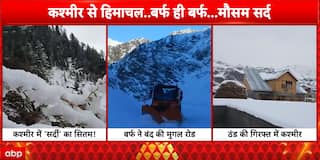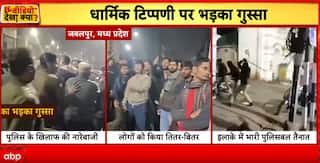AAP's Entry In MP, Rajasthan, Chhattisgarh Polls Will Harm Congress Or BJP? Check ABP-CVoter Survey
While the main contest in Rajasthan, Chhattisgarh, MP will be between Congress and BJP, AAP's decision to throw its hat into the ring may prove to be a decisive factor in these polls.

Assembly elections in the Hindi heartland states of Rajasthan, Chhattisgarh, Madhya Pradesh, scheduled to be held later this year, will prove to be stern test for the BJP and the Congress ahead of the 2024 main battle.
The elections will give us an inkling if BJP manages to hold sway among voters in Hindi heartland ahead of the Lok Sabha polls or if the Opposition, led by the Congress, upsets its applecart.
In two of the three states, Congress is in power (Rajasthan, Chhattisgarh) and BJP is in the government in Madhya Pradesh.
While the main contest in these three states will no doubt be between Congress and BJP, the decision of AAP, buoyed by its win in Punjab, to throw its hat into the ring may prove to be a decisive factor in these polls.
A survey conducted by ABP-CVoter has revelealed that AAP's decision to contest the polls will mostly affect the vote share of Congress than that of BJP.
About 41 per cent of the respondents surveyed said AAP's entry would affect Congress while 22 per cent were of the opinion that BJP would be impacted. Around 22 per cent of the respondents said the AAP factor would affect both the parties. Fifteen per cent people said they didn't know.
The Arvind Kejriwal-led AAP, aiming to expand its national footprint, has decided to hold grand rallies and roadshows in Rajasthan, Madhya Pradesh and Chhattisgarh for its campaign for the next year's Lok Sabha election as well as the upcoming Assembly polls.
Similar to its campaigning style in other states, AAP will once again hinge its entire poll plank on the education-health model. Kejriwal and Punjab Chief Minister Bhagwant Singh Mann are likely to spearhead AAP's campaign in these states.
[Disclaimer: In this survey by C-Voter, 4029 people have been surveyed. The survey has been done last week. It has a margin of error plus/minus 3 to plus/minus 5 per cent.]
Related Video
Navi Mumbai Civic Polls: Shiv Sena and BJP to Contest Separately, No Alliance Announced

































